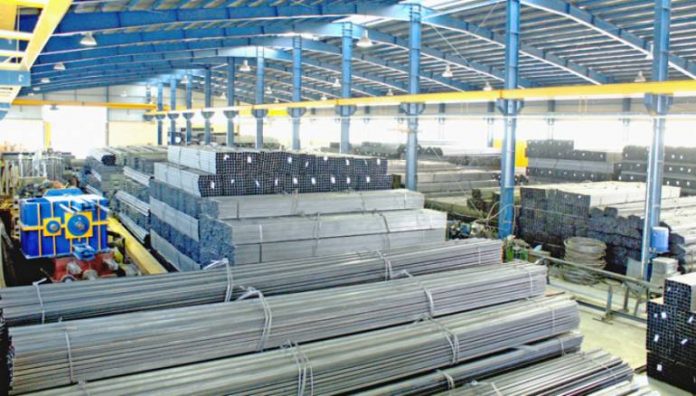- ‘The US cannot completely stop exports. Some countries, companies with no US ties, are OK to work with Iran’
TEHRAN: Iran, hard hit by US sanctions on its oil sales, now faces restrictions on metals exports — but industry insiders say foreign income from mining and steel will be harder to curb.
Tensions are soaring a year after Washington withdrew from a multilateral 2015 deal over Iran’s nuclear programme.
Another industry official, Amir Sabbagh, said that while metals firms will face extra costs, they will be “manageable” as the country’s weakened currency has made exports more profitable.
Iran’s rial has lost more than 57pc of its value against the dollar on the black market in the last year, making exports more lucrative.
Sabbagh, an official with a state-owned mining firm, wrote on Telegram that the sanctions’ main impacts would likely be to increase sea freight costs and reduce exporters’ bargaining power.
The sector could also be hurt by banking sanctions re-imposed by Washington in November.
Analyst Henry Rome warned that this could hurt Iranian importers who buy many of their raw materials from states further afield such as China, South Korea, Kazakhstan and Russia.
“The financial sanctions will choke off at least some of these relationships,” said Rome, a specialist on Iran sanctions for the Washington-based Eurasia Group consultancy.
Jobs at risk?
But Tehran-based economist Ehsan Soltani said minerals firms may be cushioned by the fact that their revenues, particularly from steel shipments, rarely make it back to Iran’s financial system.
Instead, they are largely kept outside the country to pay for imports.
Only one-third of Iran’s $40 billion in non-oil export revenue returned to the country in the last Iranian year, economy minister advisor Hossein Mirshojaeian told semi-official news agency ISNA.
Steelmakers say they keep the money outside Iran in order to pay for raw materials, arguing that they cannot bring it into Iran due to the banking sanctions anyway, Soltani said.
Despite these factors, analyst Rome warned that potential factory closures and job losses would increase pressure on the government.
Mining employs 200,000 people directly and thousands more in downstream businesses, according to Soltani.
But Fereydouni said the industry could be protected by the fact the government retains a majority share in most major companies, while smaller, downstream firms can fly under the US radar.
“Major companies… are still quasi-governmental and therefore will not lay people off under any circumstances” for fear of the political and social consequences, he said.
Ultimately, he added, sanctions are “nothing new” for Iran’s mining industry.
“We have always been sanctioned. Sometimes less, sometimes more,” he said.




